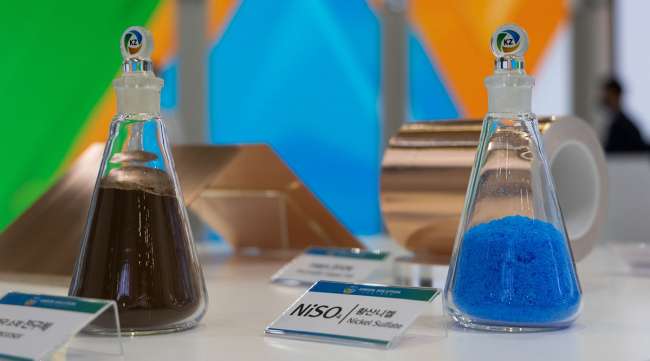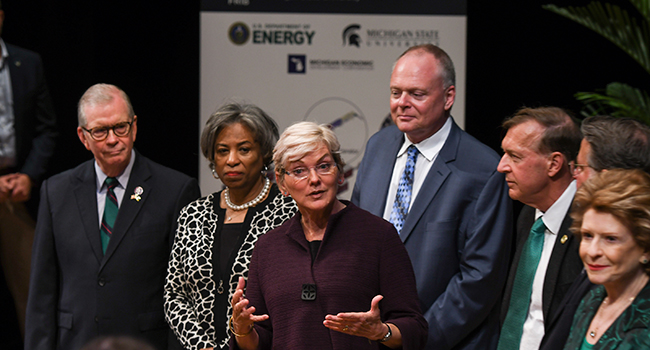Bloomberg News
Biden’s Team Puts Up Over $3 Billion to Boost Battery Output

[Stay on top of transportation news: Get TTNews in your inbox.]
The Biden administration will spend more than $3 billion to support the domestic manufacturing of advanced batteries used in electric vehicles and energy storage, officials said May 2.
About $3.16 billion in grants will be made available to produce key metals for the batteries, such as lithium, cobalt and nickel, Dave Howell, principal deputy director in the Energy Department’s Office of Manufacturing and Energy Supply Chains, told reporters in a briefing.
Encouraging the domestic production of battery minerals has been a priority for the Biden administration as it seeks to electrify half of all new U.S. cars by 2030. But surging commodity prices and supply chain snarls remain a challenge. Earlier this spring the White House invoked the Defense Production Act to spur output of lithium, nickel, graphite, cobalt and manganese.
“Positioning the United States front and center in meeting the growing demand for advanced batteries is how we boost our competitiveness and electrify our transportation system,” Energy Secretary Jennifer Granholm said in a statement.

Energy Secretary and former Michigan Gov. Jennifer Granholm speaks May 2 following a ribbon-cutting ceremony commemorating the completion of the Facility for Rare Isotope Beams at Michigan State University in East Lansing, Mich. (Matthew Dae Smith/Lansing State Journal via Associated Press)
The grants will fund new, retrofitted or expanded processing facilities, as well as manufacturing demonstrations and battery recycling, the Energy Department said. A separate $60 million program for battery recycling is also being made available, the agency said.
The money comes from the $1 trillion infrastructure bill signed into law last year, which earmarked $7 billion for batteries and the creation of a U.S. supply chain to produce them.
“This will help to underwrite that private investment we need in the United States to build a reliable industrial capacity and, for the first time, have a domestic end-to-end supply chain in electric vehicles and electric vehicle battery production,” National Economic Council Director Brian Deese told reporters on a call May 2.
Want more news? Listen to today's daily briefing below or go here for more info:



